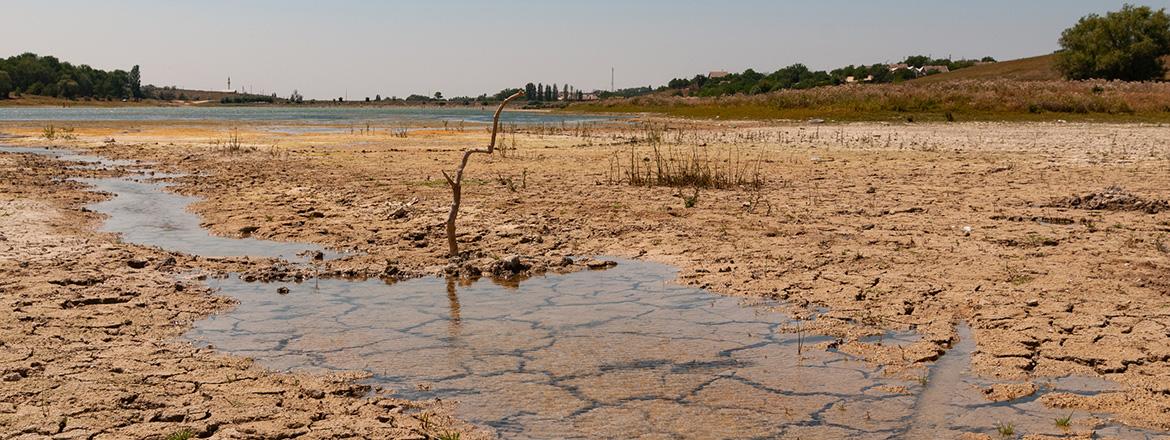Representatives from the southwest region are once again raising alarm bells about the financial impact facing the area due to drought conditions.
Several officials from the area, including Reeve Quinton Jackstreit and Councillor Tyson Jackstreit of the RM of Big Stick, and Reeve Kelly Bakanec and Councillor Kalin Deis of the RM of Fox Valley, joined NDP Leader Carla Beck and Finance Critic Trent Wotherspoon in calling for emergency relief for producers in the region. The delegation was also raising concerns that the current supports for producers are not enough.
“We stand with them today, proudly, loudly demanding that Premier Scott Moe immediately commit to providing emergency support and long-term protections for producers in the Rural Municipality of Big Stick and surrounding drought-stricken areas,” said Beck. She said Big Stick and several neighbouring municipalities in the southwest declared a state of emergency earlier this year after nine consecutive years of drought, and she added that community leaders and the NDP have been calling on the government to step up for months.
“We’ve not seen the support that is needed in this situation. Let’s be clear. This is a dire situation and supports are needed now.”
Wotherspoon said the devastation of a nine-year-long drought was “hard to fathom,” adding, “you really have to be on the ground to see it. Crops that were entirely burnt this year with nothing to take off.”
Wotherspoon said his party had called on the province and the federal government for action “numerous times,” along with producers, SARM and rural leaders, and “we’ve been met, they’ve been met with crickets.”
He reiterated his call for immediate emergency support for producers, and also called for “urgent action to fix the business risk management programs to ensure that these producers have the backstop that they deserve.”“The reality of a nine-year drought is that the business risk management programs — Crop Insurance, AgriStability — these don’t work for these producers and in this region. They need those to be fixed to work for them, and we continue to call for a 10-year deferral on taxes on capital gains for livestock producers forced to sell breeding stock due to drought devastation.”
Reeve Jackstreit said the programs in place are not built for the types of extremes they are facing.
“We’re not beggars here asking for money to sustain our farms,” he said. “We’re asking for insurance programs that are fair so that we can buy enough insurance to sustain our farms.”
Reeve Jackstreit also said they had been advocating to the current and previous agriculture ministers that this was a “recipe for disaster.”
“And the disaster has now hit. And what have we received to date? Nothing. Nothing at all.”
The Opposition raised the issue in Question Period Wednesday. As recorded in Hansard, Premier Scott Moe pointed to business risk management programs that are in place, and said “they are being adjusted from time to time through negotiations with the other provinces as well as with our federal government, Mr. Speaker. And they were adjusted to some degree just even this past year.”
“Mr. Speaker, there’s $12 billion in coverage through the crop insurance program alone across our province of Saskatchewan. And we know that this program does support producers in our province. Over the last four years there’s been about $7 billion that has been paid out to Saskatchewan producers. Of that total, about a billion dollars of that 7 billion, Mr. Speaker, has gone to rural municipalities that have declared states of emergency. About a quarter-billion of that is to the RM of Big Stick.”
Moe added that “our Minister of Agriculture, the Crop Insurance Corporation, Mr. Speaker, are always open to discussing and having discussions with our ag producers wherever they might be across the province.”
In his answers in Question Period, Agriculture Minister Daryl Harrison pointed to measures they have taken such as extending the AgriStability enrolment deadline, and increasing the compensation rate and the maximum cap on payment. He also pointed to yield cushioning to reduce the impact of consecutive dry years. “We’ve been there for producers.”
Jeff Morrow, president and CEO of Saskatchewan Crop Insurance Corporation, pointed to yield cushioning as being available as a feature when “producers are facing back to back to back situations like the producers in the RM of Big Stick.”
“What it does is it supports that coverage when producers are faced with those circumstances.”
Morrow also pointed to other programs like AgriStability being available for margin support. “It’s a suite of programs intended to support producers when they face those challenges.”
Morrow said they meet with stakeholders to talk about opportunities to make adjustments, but “right now that yield cushioning is the real feature that I would point to that is intended to support and provide coverage when producers face those back to back to back situations.”
Speaking to reporters afterward, Wotherspoon made it known he was unimpressed with what he heard from the government that afternoon.
“The ag minister has completely failed these producers, the Sask. Party and the premier and their local MLA have failed these producers,” said Wotherspoon. “They couldn’t even answer the questions or step up with the support that’s needed in the Assembly here today, and now the ag minister and the premier won’t even come before the media and are hiding from answering for their inaction and their failures on this front. It’s nothing short of pathetic and weak, and it’s not the Saskatchewan way. These producers are facing a dire situation and they deserve and need a government to step up and have their backs.”
Source - https://www.moosejawtoday.com













